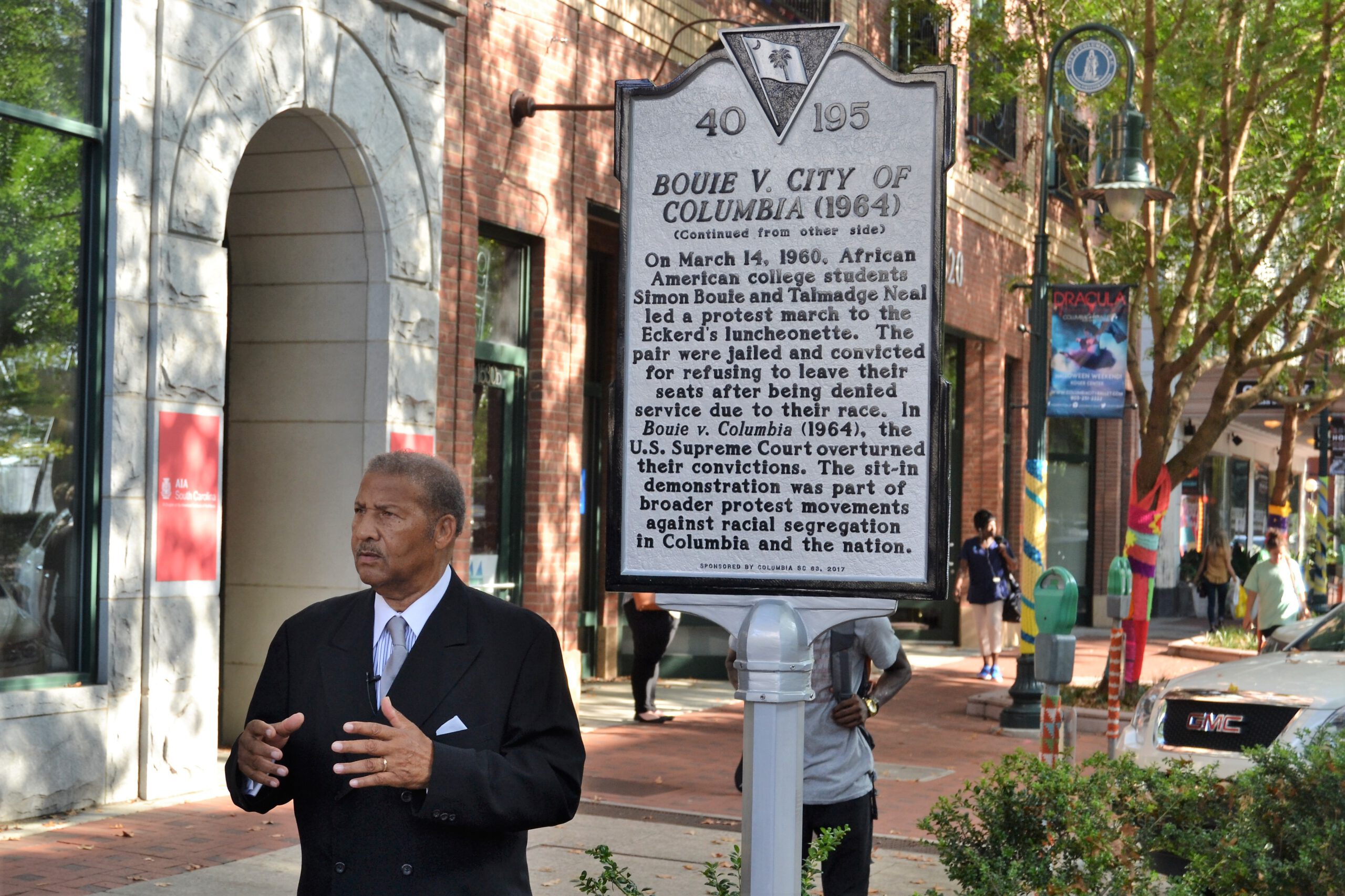By Angelena Spears, Philadelphia Conference Reporter
When the Rev. Simon P. Bouie retired in May of 2014, at the seat of the Philadelphia Annual Conference, he did not trade in 50 years of a luminous ministry to live incognito. Instead, when he and his wife, Sister Willie T. Bouie, decided to return to their home state of South Carolina, it catapulted him back into the spotlight for the work he did in the 1960s to fight against segregation.
As a young student at Allen University, the Rev. Bouie challenged the laws of Columbia, South Carolina, when he and another college student, Talmadge Neal of Benedict College, walked into the local drug store and insisted on being served at the “Whites Only” luncheon counter. The date was March 14, 1960. As a result, both were dragged off to jail and the Rev. Bouie fought back in a legal battle that found its way to the United States Supreme Court in Bouie vs. City of Columbia.
Fast forward to October 2017, and a diverse group of South Carolinians gathered in downtown Columbia to witness the unveiling of a marker bearing the Rev. Bouie’s name that commemorated the victorious fight for justice. Just months after the Supreme Court decision, the U.S. Civil Rights Act was passed, outlawing segregation throughout the country.
Since those early days, the Rev. Bouie has served as a pastor in South Carolina, New York, and Philadelphia. His charges have included Emmanuel AME Church in Harlem; Mother Bethel AME Church in Philadelphia (he was their 51st pastor); and Zion AME Church in Philadelphia.
Today, he worships at St. Paul AME Church in Irmo, South Carolina, where the Rev. Dr. Derrick Scott is the executive pastor. At St. Paul, the Rev. Bouie assists the ministerial staff.
Coincidentally, Sister Bouie, a retired school teacher, was also active in the civil rights movement in the early 1960s. She remembers taking part in demonstrations where dogs and water hoses were used to thwart their efforts. She also remembers the concern her parents had for her safety.
In reflecting on the progress made since the 1960s, the Rev. Bouie says that racism still exists but points to the progress that has been made. “When I lived here [in the 60s] I really experienced segregation,” he says. “We couldn’t sit at the front of a bus, eat in restaurants, or go to [their] schools,” he says. “However, now schools are integrated. We can eat where we want to. And I see Blacks in positions of leadership. Even the mayor is Black,” says the Rev. Bouie.
“We’ve come a long way,” says the Rev. Bouie. “And each generation has a responsibility to take it a step higher,” he adds.





